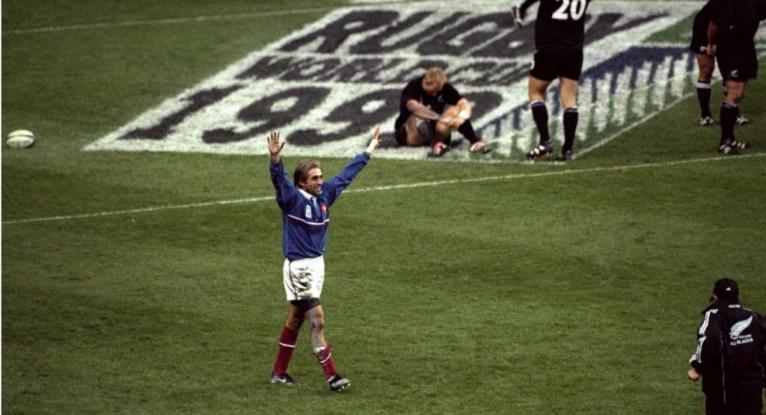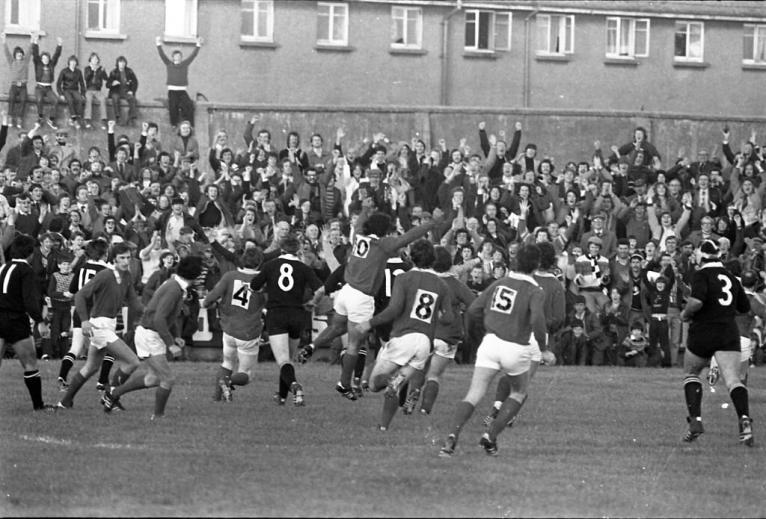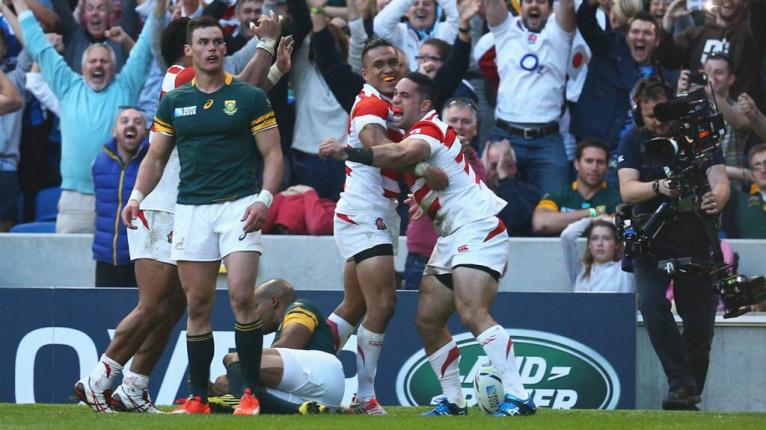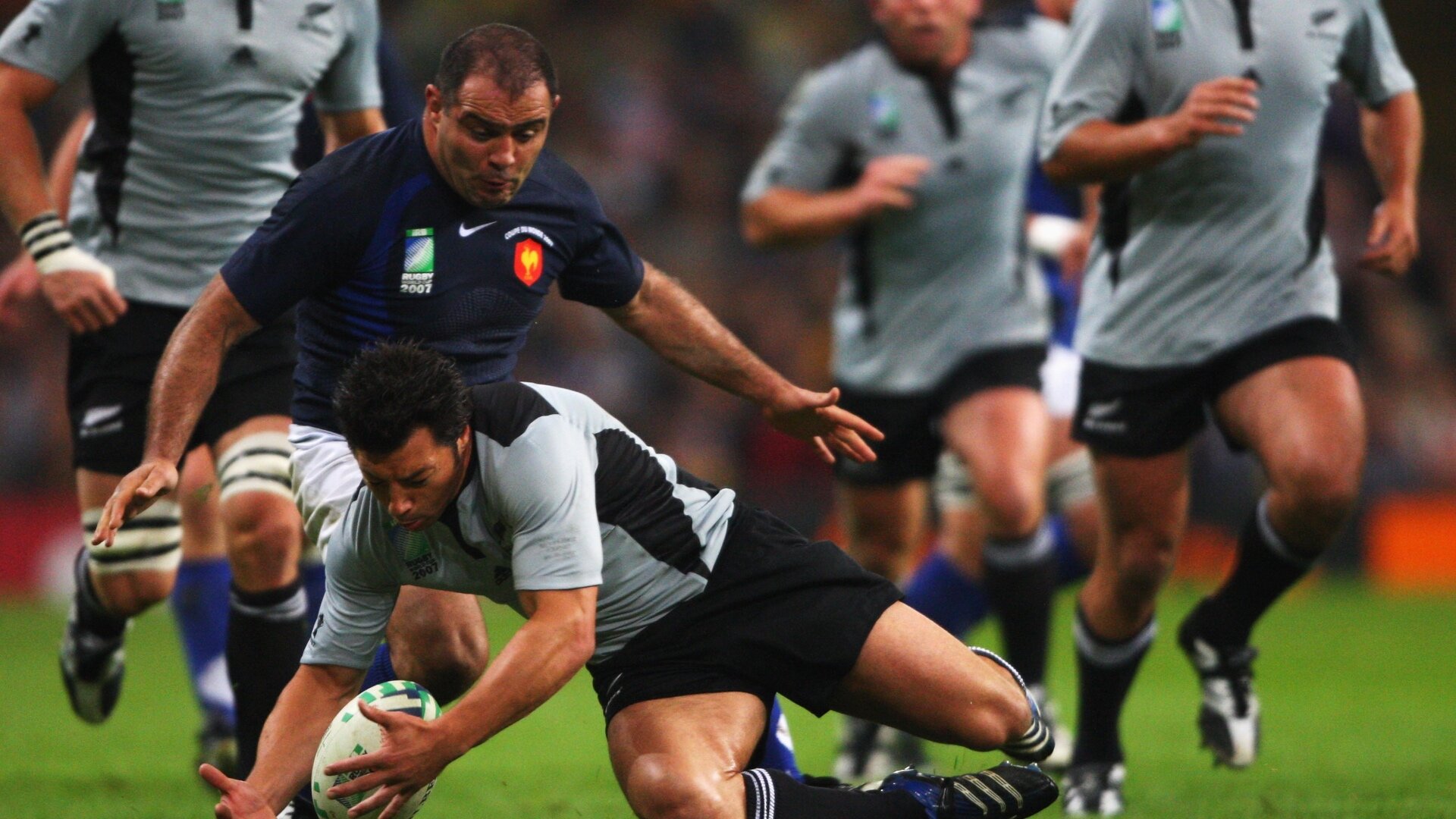Biggest ever rugby union upsets

Everyone loves a good upset.
The David Vs Goliath story never fails to attract attention and intrigue.
Let us have a look at some of the greatest ever upsets in rugby history:
3) France 43-31 New Zealand, 1999

Whilst not the biggest ever upset to have happened in world rugby, New Zealand being dumped out of the world cup by France did come across as a major shock.
The All Blacks were overwhelming favourites to lift the trophy for the second time in their history, but were undone by a French side that over the years has become quite the bogey team.
Described at the time as the greatest upset in world cup history, the game was dominated by the flying wingers from both sides. The late greats Jonah Lomu and Christophe Dominici exchanged magnificent try after try, as the two sides battered each other with every fibre of their being.
New Zealand started the strongest, taking a commanding 24-10 lead. At one stage it appeared the 1987 winners were in prime position to take their place in the final.
It was the Star of the Match, Christophe Lamaison that really turned the tide for the men in Blue. With 2 quick drop goals and 2 penalties in extremely quick succession, the French were back in the game.
As the second half moved on, the All Blacks, full of world-class superstars started to make mistake after mistake.
The classic French flair was on full display, and one try came after another. The All Blacks hopes were finally finished off with a break-away try which Philippe Bernat-Salles, the silver-haired speedster, was able to latch onto to deal the punishing blow.
The match ended France 43-31 New Zealand, subsequently ending the campaign for the All Blacks.
2) Munster 12 – 0 New Zealand, Thomond Park, 1978

It’s not often a club side will take on an international side, and after this result the famed All Blacks hope it to happen even less.
An almost full-strength New Zealand side took to Thomond Park in what was expected to be a comfortable win against the Irish province, Munster. The home side had only had a couple of warm-up matches against London opposition, one of which they got slaughtered by Middlesex County.
The All Blacks were not expecting the level of intensity that followed. Roared on by the Thomond Park crowd, the Irish side were playing as if their lives depended on it. Throwing in the most outrageous tackles, and stopping the tourists from playing their normal game. All Blacks coach, Jack Gleeson took exception to this tactic following the game:
“We were up against a team of kamikaze tacklers,” he lamented. “We set out on this tour to play 15-man rugby but if teams were to adopt the Munster approach and do all they could to stop the All Blacks from playing an attacking game, then the tour and the game would suffer.”
However it was viewed from the New Zealand perspective, there could be no doubt that this was the most famous 12-0 victory of all time.
New Zealand wing Stu Wilson stated afterwards that “We were lucky to get nil”, and also likened the match to playing in front of a crowd of 100,000, such was the noise.
1) South Africa 32-34 Japan, 2015

Up until this time, Japan were known as world rugby minnows. They had won only 1 game at rugby world cups at this time, back in 1991 in a 52-8 victory over Zimbabwe.
That victory did not signal years’ worth of plane sailing victories for the Cherrie Blossoms, in fact just 4 years later at the next version of the competition they were on the receiving end of a 17-145 thumping by the great All Blacks.
Fast forward to the 2015 world cup, Japan were headed up by veteran head coach, Eddie Jones. This appointment had proved wonders for Japan. With three years of growth for Japan, Jones reduced the number of foreign players in the squad and encouraged homegrown Japanese players to play a more exciting and expansive ‘heads up’ version of rugby.
Despite the impressive form Japan had been in, nobody expected them to perform quite as well as they did in this world cup. With Steve Borthwick as the defensive coach for Japan, the first half saw a tight defensive effort from the Japanese, going in at halftime just 2 points down.
Despite the colossal effort of the Japanese side, even die-hard fans would have been wary of putting a bet against 2-time world cup winners, South Africa.
A huge attacking effort from Japan in the second half would start to change those minds, however.
A combination of ill-discipline and a pinpoint accurate boot from Ayumu Goromaru saw Japan just 3 points behind in the final minute. Japan were awarded a penalty, but instead of taking the points, they elected for the scrum and thus aimed for the historical win.
Mere minutes later Karne Hesketh found himself on the dart for the line at the left-hand touchline, going over to win the match 34-32 for the Japanese.
This was one of 3 victories for Japan in the group stage. They were arguably unfortunate not to qualify for the quarter-finals due to a weaker points difference than both Scotland and South Africa.
Four years later Japan built on this success and went on to become unbeaten in their pool stages in their home world cup, before crashing out against South Africa in the quarter-finals in what was described at the time as South Africa’s redemption.
Since this monumental victory, the Japanese game has grown massively. By 2022, there were 125,000 Japanese rugby players, 3,631 official rugby clubs, and the Japanese national team was ranked 10th in the world.





























































